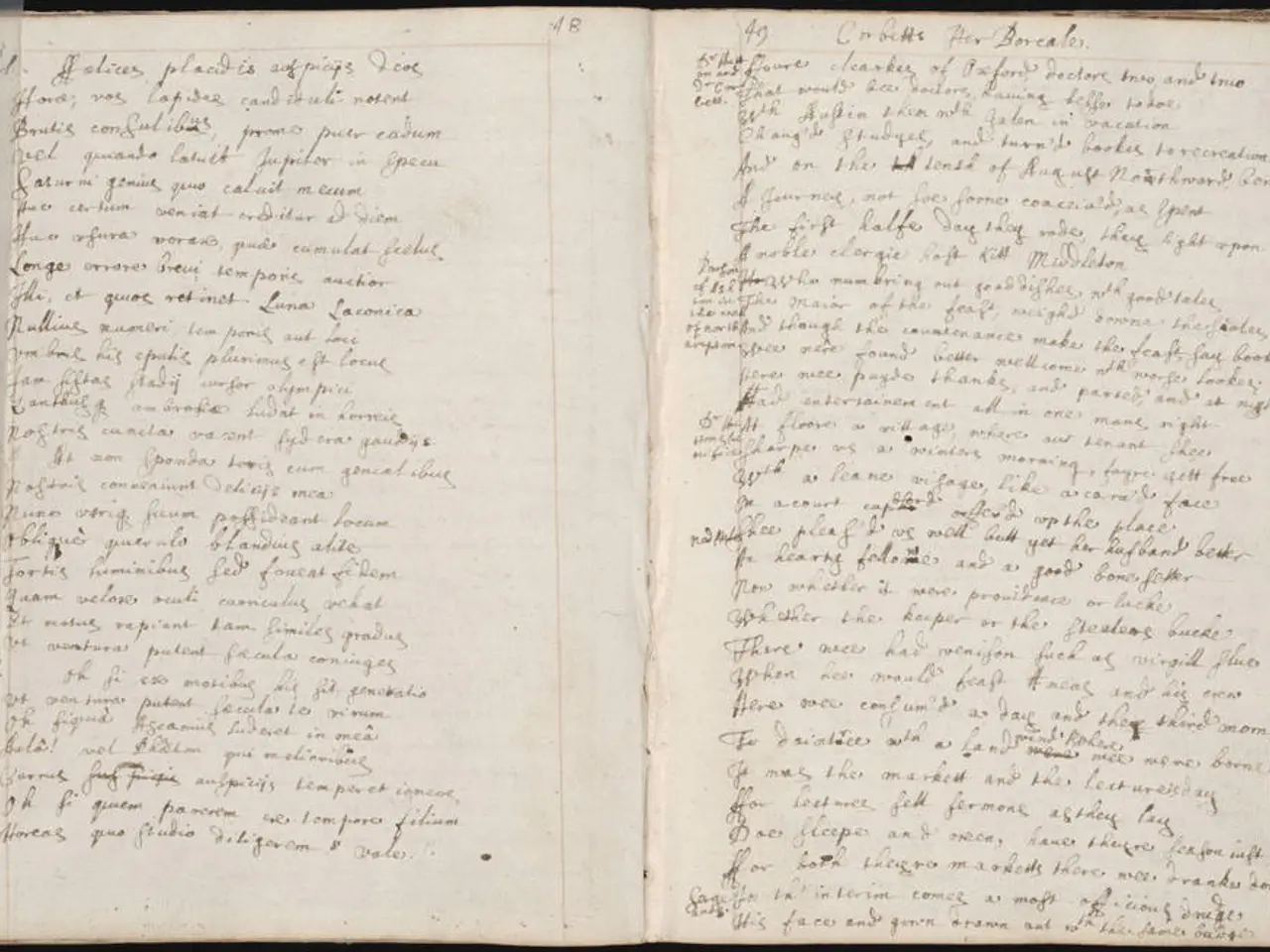"A significant number of questionable academic journals have been identified as potential fakes by AI, raising doubts about the credibility of peer-reviewed scientific studies"
In a groundbreaking study published in Science Advances on August 27, 2021, researchers from the University of Colorado Boulder have developed an AI tool to help identify potentially problematic open-access journals. The tool, which was trained in part on best-practice criteria from the Directory of Open Access Journals (DOAJ), scans journal websites and published papers for patterns tied to dubious practices.
The AI tool flags red flags such as ultra-fast publication times, high self-citation, and opaque fees, which are common tactics across industries like tobacco, food, and pharmaceuticals. These industries often steer funding toward commercially useful topics and prioritise lines of inquiry that support legal/policy positions.
A comprehensive scoping review in the American Journal of Public Health found that industry-sponsored studies tend to be biased in favor of the sponsor's products. This bias can lead to questionable scientific claims and undermine the reliability of research.
The peer-review process is a crucial step in maintaining the integrity of scientific publications. A peer-reviewed study refers to the evaluation of a manuscript by an author's peers - independent experts who assess whether a study is sound before it's published. Major journals use this process to protect their reliability and reputation.
Transparency is key in the peer-review process. The peer-review process should be transparent, with editors naming reviewers or publishing reports. It is also important to look for clear peer-review policies, fees, and licenses on the journal's website.
The University of Colorado Boulder team framed the AI tool as a "firewall for science." However, even with the help of AI, final human judgement is still necessary. The co-author of the study, Daniel Acuña, stressed that the tool is a prescreener, not a judge and jury, and that a human expert should be part of the vetting process before any action is taken.
The AI tool screened approximately 15,000 open-access journals and flagged more than 1,000 as potentially problematic. This includes titles owned by big, reputable publishers. Cancer researcher at the University of Sydney, Australia Jennifer Byrne, stated that there is a group of problematic journals in plain sight that are functioning as supposedly respected journals that do not deserve that qualification.
To evaluate "scientific" claims, it is recommended to check the journal to see if it is indexed by DOAJ. The Directory of Open Access Journals (DOAJ) is the main supervisory authority and directory for reliable open-access journals. It is also important to look for funding disclosures, with who paid and any conflicts declared.
The University of Colorado Boulder study highlights the importance of maintaining the integrity of scientific publications and the need for transparency and accountability in the peer-review process. The AI tool developed by the team provides a valuable resource in the fight against questionable scientific claims and the undue influence of corporate interests in scientific research.
Read also:
- Understanding Hemorrhagic Gastroenteritis: Key Facts
- Stopping Osteoporosis Treatment: Timeline Considerations
- Tobacco industry's suggested changes on a legislative modification are disregarded by health journalists
- Expanded Community Health Involvement by CK Birla Hospitals, Jaipur, Maintained Through Consistent Outreach Programs Across Rajasthan








